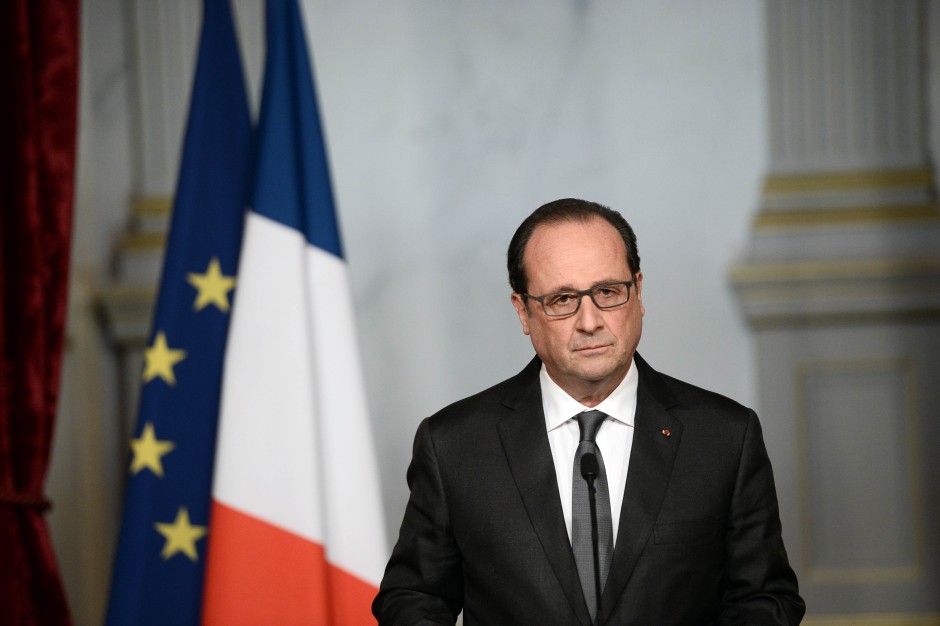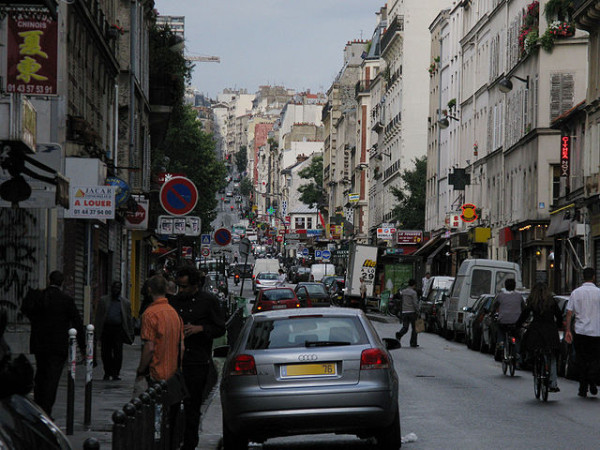
Friday, November 13 was a black day for France as nine Arab terrorists ruthlessly killed 129 people in Paris in the deadliest attacks in the French capital since World War II. But is there a silver lining in this tragedy? The bloodshed may well spell the beginning of the end of Islamic State. Perhaps a tipping point has been reached in the struggle against this scourge of global jihadism.
Islamic State, though powerful and menacing, is hardly an invincible foe. It can be substantially degraded and, hopefully, defeated on its home ground in the Middle East should the right measures be adopted and carried through to completion.
In the weeks and months to come, Islamic State will be hammered by the West. But Islamic State, steeped in an apocalyptic ideology, may welcome a war with the “infidel” powers.
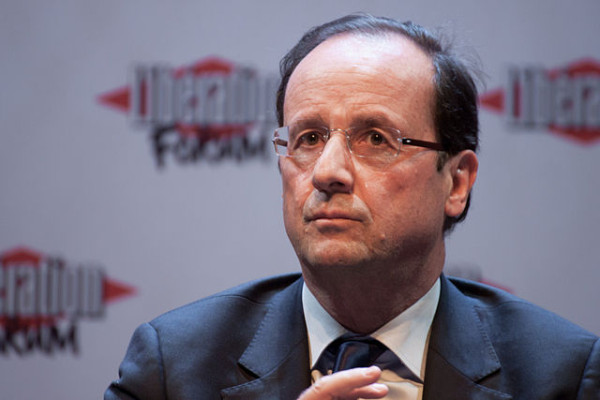
The facts about last Friday’s outrage, the most serious terrorist incident in Europe since the Madrid train bombing in 2004, have begun to emerge. As French President Francois Hollande disclosed after declaring war on Islamic State and imposing a state of emergency in France, it was planned in Syria, an Islamic State haven, and organized in Belgium, a hotbed of Islamic radicalism.
The rampage in Paris signifies a new chapter in Islamic State’s development as the world’s most potent jihadist group. Having focused on Syria and Iraq until recently, Islamic State has expanded its reach, having carried out three major attacks throughout the Middle East in the past month alone.
Islamic State claimed responsibility for killing nearly 100 Turks in Ankara on October 10. It took credit for killing 224 passengers in the downing of a Russian airliner over the Sinai Peninsula on October 31. And it acknowledged its direct role in killing 43 Lebanese civilians in a Shiite-populated neighborhood in Beirut on November 12.
No one knows what comes next, but the attacks in Paris have had a profound impact on international public opinion and led to calls for eradicating Islamic State.
As France picks up the pieces, Parisians must surely be horrified by the fact that the majority of the gunmen were home-grown terrorists, born and bred in France and Belgium. The apparent ringleader Abdelhamid Abaaoud, is a Belgium citizen of Moroccan Arab ethnicity.
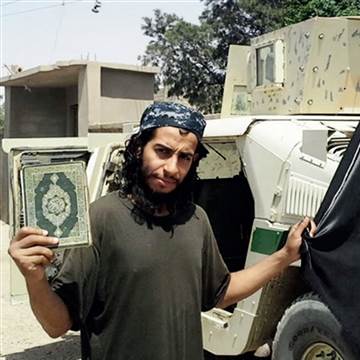
This is not altogether surprising because hundreds of young French men, Muslims and Christian converts to Islam alike, have flocked to Syria and Iraq to take up arms on behalf of Islamic State, whose overarching goal is to create a medieval-style, borderless caliphate in the Middle East.
In its quest to advance its agenda, Islamic State has recruited thousands of Europeans who are alienated from mainstream European societies, fired up by Islamic State’s rigid Islamic fundamentalism and ready to die for the cause, buoyed by the prospect of killing “infidels” and by the hope of being entertained by 72 celestial virgins.
The majority of Muslims in Europe are law-abiding and peaceful, but a disaffected and dangerous minority has fallen under the influence of extremists who feel no attachment or loyalty to their respective countries. They’re strangers in strange lands who are willing to risk everything for their twisted beliefs. Since millions of Muslims live in Europe, the problem may be worse than previously thought. Is Europe sitting on a ticking time bomb?
The November 13 attacks in Paris are so unnerving due to their random nature. Last January’s Charlie Hebdo massacre, followed by the fatal shootings of four shoppers in a kosher supermarket, were exclusively aimed at specific targets. The radicalized Kouachi brothers who stormed the offices of the satirical newspaper were enraged by its disrespectful treatment of Mohammed the Prophet. Amedy Coulibably, the perpetrator of the second assault, was animated by antisemitic animus.
By contrast, the cold-blooded killers who attacked five restaurants, a football stadium and a music hall in Paris were motivated by a desire to strike fear into the hearts and minds of Parisians and thereby disrupt their daily routines and pleasures.
Islamic State’s strategic objective is to create a climate of intimidation and uncertainty so that Western powers like France, Britain and the United States withdraw their troops and bases from the Middle East and leave the region in its hands. But after the grisly killings in Paris, which have outraged the West, Islamic State will likely face far greater fiery from the West.
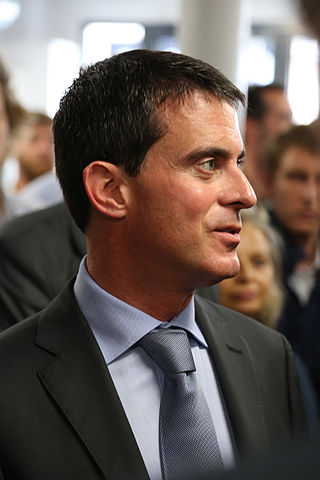
As French Prime Minister Manuel Valls declared, “We are at war against terrorism.”
On November 15, in the first phase of what’s expected to be a renewed campaign to degrade Islamic State, French fighter jets bombed Raqqa, the city in eastern Syrian which serves as its de facto headquarters. Islamic State, which is at war with Syria, captured Raqqa from the Syrian army in 2013.
The United States and several its Arab allies, including Saudi Arabia and Jordan, launched an air war against Islamic State in Syria in September 2014, a month after launching a bombing campaign in Iraq. Eventually, France sent jets into the fray in Syria, where a civil war has raged since 2011.
Russia — a stalwart ally of Syrian President Bashar al-Assad’s regime — began bombing rebel positions in Syria from the air on September 30, but few of its missions have been directed at Islamic State. Now that Moscow has officially acknowledged that a terrorist bomb brought down a Russian airliner in the Sinai, Russia has intensified its raids against Islamic State. And in an escalation, a Russian submarine in the eastern Mediterranean Sea has fired Kalibr cruise missiles at Raqqa.

Since September, France has stepped up the pace of its air campaign in Syria, as has the United States, which has started bombing oil fields that generate about $500 million in annual revenue for Islamic State’s coffers.
A few days ago, the Americans targeted an iconic Islamic State figure, Mohammed Emwazi, in a drone strike in Raqqa. A naturalized British citizen otherwise known as Jihadi John, he was the brutal face of Islamic State on social media, having beheaded a string of foreigners. Among his victims were the American journalists James Foley and Steven Sotloff.
A day after Emwazi’s death was announced, American F-15 jets killed one of Islamic State’s leaders in Libya, Wissam Najm abd Zayd al Zubaydi. It was the first time the United States had hit a senior Islamic State leader outside Iraq or Syria.
U.S. President Barack Obama, who appears to have underestimated Islamic State’s resilience, has pledged to intensify air operations against Islamic State, saying “these terrorists could pose a growing threat” beyond the Middle East. But scarred by U.S. misadventures in Somalia, Afghanistan and Iraq, he has ruled out sending ground troops to Syria. Obama hopes to settle the Syrian civil war by diplomatic means, but the prospects are exceedingly slim, particularly since Islamic State cannot be part of such a process.
In the meantime, there are steps that the United States and its allies can take to confront Islamic State on a more aggressive and systematic basis.
The air campaign in Syria must be escalated significantly, and Russian aircraft must focus on degrading Islamic State. It’s true that Islamic State defeats on the battlefield will strengthen Assad, but that’s unavoidable.
On another front, the Iraqi army must retake Mosul and Falluja, which were captured by Islamic State in offensives in 2014 and 2013. The United States and Iran would have major roles to play in these operations, but it’s an open question whether Iraqi Sunnis and Shiites can overcome their sectarian differences and work in tandem to liberate Islamic State-held territory.
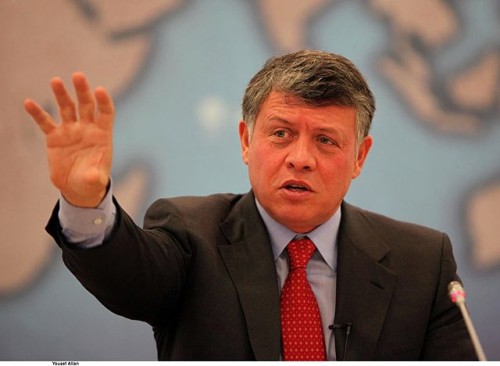
Boots must be placed on the ground, the sooner the better, because air power alone will not annihilate Islamic State. A pan-Arab army of about 100,00 troops, supported by American advisors and existing Kurdish forces, must be assembled to confront Islamic State. It should be backed to the hilt by U.S., allied and Russian air power. As Jordan’s King Abdullah correctly said the other day, Muslims must lead the charge in the war on Islamic State.
Turkey, the only Muslim member state of NATO, should upgrade its involvement in this war and focus its military efforts on smashing Islamic State rather than the Kurds.
Make no mistake. It will be be lengthy and costly war, but that’s the price to be paid for ridding the Middle East of this malignant cancer.
Concurrently, Islamic State sources of funding should be dried up and oil-rich Arab states like Saudi Arabia should contribute to an economic master plan to improve living standards among the impoverished in the region.
On the European continent, countries like France, Britain and Germany should work closely with Muslim communities to expose, ostracize and isolate Islamic extremists. Radical mosques should be closed, extremist imams should be arrested and deported and the citizenship of dual nationals who engage in terrorism should be revoked.
Migrants/refugees from the Middle East must be thoroughly screened before they’re admitted to Europe, Canada and the United States.
The war on Islamic State has just begun, but with the right tactics and sufficient willpower and patience, the West can prevail.
